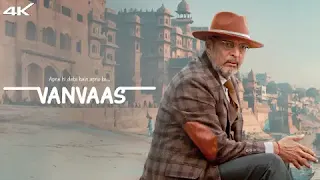The second movie, which did not pose a threat to Vijay’s heavyweight, not surprisingly, was cleared easily. This movie, starring Sivakarthikeyan, the game show host who found fame through sheer grit, is a historical drama based on the 1965 riots in Tamil Nadu against the imposition of Hindi as the national language. This film turned out to be a propaganda movie through and through, putting DMK and their former leaders as the sole defenders of the Tamil language. As DMK controls the whole of Kollywood, movies are and have been the mouthpiece of the ruling class. By controlling movie distribution, production and theatres, they maintain cultural and political dominance in Tamil Nadu. Through this movie, the ruling party hopes to present a false narrative to new voters, the Gen Zs, that only DMK can keep the Tamil language 'alive'.
DMK and its predecessor, DK, have been thriving on the same ‘divide and rule’ policy that the British employed to quell Indian resistance. DMK makes the Northerners their bogeyman. They subscribe to the now-defunct Aryan Invasion theory and create an aura that the Hindi-speaking people from North India are out to wipe out the Tamil language and culture. Within the state, they also accuse Brahmins of usurping others' opportunities with their perceived oppression of the rest of Tamil Nadu with Brahminical ideologies.
The scenario for the 2026 state election is like this. With the spate of BJP wins in recent state elections, increasing the BJP’s popularity and the entry of actor Joseph Vijay into politics, are making DMK stakwart Stalin feel hot under his tall collar. His party has promised to eradicate Sanathana Dharma, but continues to be seen performing poojas for blessings.
Recently, the perennial issue of teaching Hindi in schools resurfaced. DMK, the self-appointed defender of the Tamil language, had categorically put their foot down to deny compulsory teaching of Hindi in government schools.
With the same rebel yell that they shrieked in 1965, DMK is entering the latest elections, and this movie lays the groundwork of their campaign.
Resistance to the introduction of Hindi into the Tamil Nadu school system has persisted for the longest time, even when the region was under the Madras Presidency. In 1937, under British rule in India, the Indian National Congress ruled this region, led by Rajaji. Congress, in preparation for self-rule, was toyying the idea of Hindi as the National language. The issue came up again just before Independence and again when the Constitution was drafted in 1950. Nehru promised Tamil Nadu that a grace period of fifteen years would be given before Hindi was made the official language.EV Ramaswamy, revered by DMK as the champion of Tamil, is also affectionately known as 'Periyar' (the Elder) and is anything but a bastion of the Tamil language. He had once condemned the language as barbaric¹, and it is not compatible as a modern lingua franca or for scientific purposes.
It is ironic that in the 1930s and throughout the 1960s, the Dravida Party was hell-bent on opposing the Indian Congress Party over the language issue. Now, it has joined forces with Congress and is opposing the Central Government led by the BJP. Regardless of which party is in power, the DMK will oppose the Central Government. Remember, in the years before Partition, the Dravidian Party wanted to accede to Pakistan? And EV Ramasamy declared 15th August 1947 as a day of mourning.
 |
| https://www.reddit.com/r/IndianHistory/comments/1qcmlrf/1 965_tamil_student_protest_against_hindi/ |
This movie tries to retell events that led to the 1965 Hindi imposition riots. Nehru died in 1964, as the deadline to make Hindi the official language of the country approached. University students, instigated by Annadurai and Karunanithi, initiated demonstrations in multiple cities. The story tells a romanticised version of a docile elder brother who tries to save his young brother from harm. The elder brother has a violent past that resurfaces as a vengeful IPS officer who wants to squash the Tamil rebellion once and for all. In the midst of all this, a few figures from the past are shown, painting a DMK-friendly picture of them saving the Tamil language and its culture from being overrun by enemies from the North.
Historians and people who lived through the 1960s vehemently oppose the movie's alternative history of what actually transpired during that time. Others, including the Youth Congress group, are 'up in arms' about the negative portrayal of their former leaders. They scream for the film's banning.
(P.S. In the modern world, people are expected to learn as much as they can, including all the languages of the world. Alternatively, use Google Translate! Also, language is not everything, as seen in the later years. Andhra Pradesh, which was created along linguistic lines, was divided into Andhra Pradesh and Telangana because of economic imbalances.)
1. https://www.telegraphindia.com/india/nirmala-sitharaman-says-periyar-dismissed-tamil-as-a-language-his-was-a-push-for-reform/cid/2088564#goog_rewarded
.jpeg)












.jpeg)





